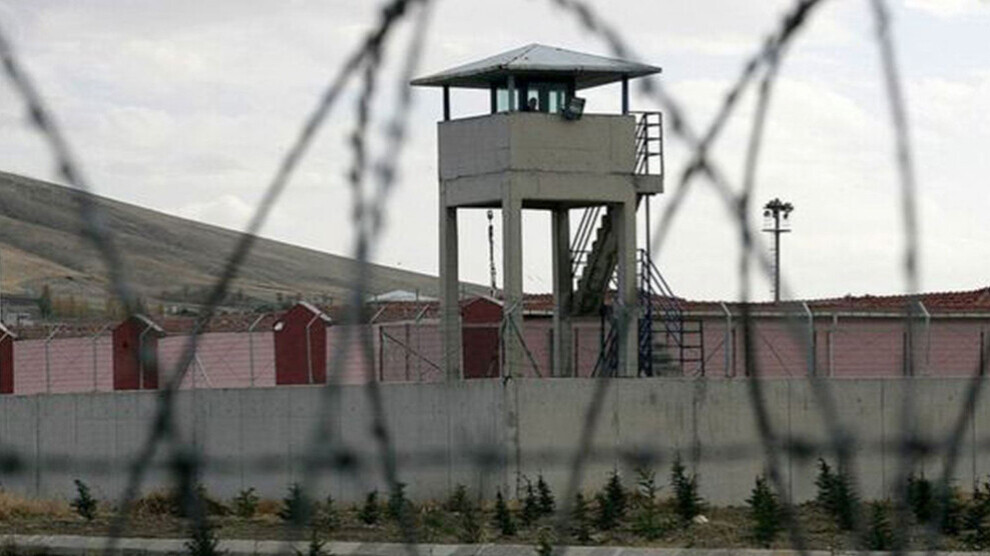Özaraz: Isolation is the biggest problem in prisons
The president of the Van Bar Association, Sinan Özaraz, made an urgent appeal to the public underlining the isolation imposed in prisons in Turkey.
The president of the Van Bar Association, Sinan Özaraz, made an urgent appeal to the public underlining the isolation imposed in prisons in Turkey.

The prisons in Kurdistan and Turkey are the scene of serious human rights violations. There has been no news for 29 months from Kurdish people’s leader Abdullah Öcalan, who is held in total isolation in Imrali. And the isolation system implemented in the prison island is spreading to prisons across the country. Ill prisoners die, the release of people after 30 years of imprisonment is refused on flimsy pretexts. Van Bar Association President Sinan Özaraz spoke to Mezopotamya News Agency about the situation in the detention centers.
"Universal rights are being violated"
Özaraz underlined that universal principles of law actually apply to detention centers and said: "There are many such rights, such as the right not to be tortured and ill-treated, the right to health, communication, and receiving visits. And, of course, there is the prohibition of isolation. If we look at prisons in Turkey, we see that many of these rights are constantly being violated. This situation is quickly developing into systematic rights violations."
Özaraz said that the Van Bar Association are carrying out investigations in prisons at the request of prisoners and their families and will present the results as a report.
Forensic medicine as an instrument of torture
Noting that torture and ill-treatment are prohibited by national and international conventions, Özaraz said: "The execution in prison must comply with these basic principles. But when we look at the reports, we see that these rights are being violated. There are many problems with accessing health care. It has been reported that detainees have received no response to their requests for access to medical care, that their requests have been delayed or that they have been subjected to inhumane treatment while being transferred to hospital. Prisoners are forced to have an oral examination. Such a thing has no place in the law. And then, of course, there is the violation of the rights of ill prisoners. There are people who cannot survive in prison. These people shouldn't be held in prison in the first place, but they are. There are hundreds of ill prisoners in Turkey’s jails. One of the problems we are faced with is the obstacles created by the reports of the Forensic Medicine Institute (ATK). While a person is being given a certificate stating that he cannot stay in prison at the hospital, the ATK is giving the same patient a report saying that in fact he can. This violates the right to life of ill prisoners."
"Prisoners are left to die"
Özaraz explained that prison regulations prohibit discrimination, but political prisoners are punished twice because they are simply not released in the event of serious illness. He added: "The number of deaths in prisons has risen sharply. This is also due to ATK's approach. People don’t get released when they should. They will only be released when they are dying or when they make it onto Turkey's main agenda. But there are many people who are not on the agenda. Unfortunately, these people are left in prison to die. It was claimed that a settlement would be made but no action was taken."
The Bar Association President pointed out the double standard of the current prison reform and said: "The only regulation it contains relates to general crimes, but those serving time for political and opinion offenses have been exempted. This arrangement has evolved into an amnesty for many, and offenders see it as a license to commit crimes."
Letters are not handed out
Isolation, said Özaraz, is also a way to severe the connection between prisoners and society, adding: "There are violations such as the censorship imposed on entire publishing houses, television stations and newspapers. Letters written or received in Kurdish are not being sent or delivered on the grounds that there is 'no interpreter'. We do know, however, that some detainees were under investigation over the content of letters that allegedly were not given because there was no interpreter. It is clear there are interpreters, but the letters are arbitrarily withheld. And even if there were no interpreter, one would have to be provided."
"Isolation is the biggest problem"
Özaraz underlined that one of the biggest problems in Turkey is indeed the isolation system. "Isolation has become systematic in all prisons. Political prisoners in particular are kept in solitary confinement, although they receive no disciplinary punishment. Isolation also affects health, because health is not only something physical, it also has a social and psychological dimension. In this respect, we are witnessing a serious violation of the law, which unfortunately is now widespread in all prisons in Turkey."